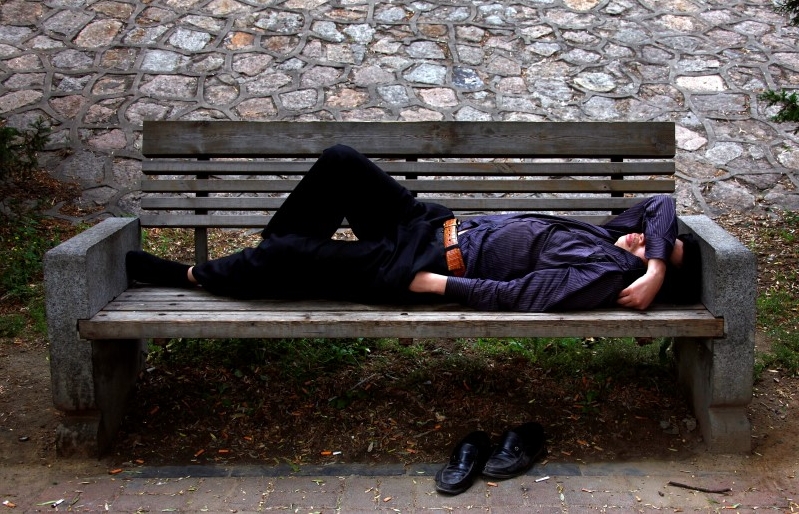
People who wake up several times during the night may be in a worse mood come morning than those who get the same amount of sleep over a shorter time - but without interruptions - a small U.S. study suggests.
Researchers checked 62 healthy people into a hospital sleep lab for three nights and randomly assigned them to one of three bedtime fates: uninterrupted rest, delayed bedtimes or consecutive nights of eight forced awakenings.
After the first night, people with interrupted sleep or delayed bedtimes experienced a similar low positive mood and high negative mood based on emotional assessment questionnaires they completed.
But differences emerged after the second night, when the group assigned to forced awakenings had a 31 percent reduction in positive mood compared with a 12 percent decline for the group that had delayed bedtimes, researchers report in the journal Sleep.
"It is not simply the quality or the quantity of sleep that dictates mood, but rather a combination of the two," said lead study author Patrick Finan of Johns Hopkins University School of Medicine in Baltimore. "We found that repeatedly disrupting sleep was worse for next-day positive mood than delaying bedtime, despite the fact that groups were matched on the total amount of sleep time allowed."
Because sleep and mood appear connected, it may be helpful for doctors to track changes in both of these things from day to day to better understand the best way to help patients feel better or be better rested, Finan added by email.
To explore the link between the two, Finan and colleagues asked participants to remain in the hospital around the clock and complete questionnaires before bedtime each night, asking, among other things, if they felt anxious or calm, annoyed or angry, cheerful or alert.
People included in the study were non-smokers who drank no more than two cups of coffee daily and typically had regular bedtimes and got about 7 to 8.5 hours of sleep a night.
Compared with the delayed bedtime group, the forced awakening group had shorter periods of deep, slow-wave sleep, the study found.
The lack of sufficient slow wave sleep was tied to a reduction in positive mood, and it was also linked to lower energy levels and reduced feelings of sympathy and friendliness.
Shortcomings of the study include the reliance on participants to accurately recall and report on their emotions, as well as the once-daily questionnaire that might overlook fluctuations in mood throughout the day, the authors acknowledge.
Even so, the findings build on previous research linking reduced slow wave sleep with less consolidation of positive emotional memories, noted Frank Scheer, a sleep researcher at Brigham and Women's Hospital in Boston.
To minimize the odds of sleep disruption, people might need to take steps to control noise, light and heat, Scheer, who wasn't involved in the study, said by email. Earplugs, heavy curtains or eye masks, and a cool bedroom temperature may help. And when all that fails, a brief 20 to 40 minute daytime nap might also help, he said.
"Mood disorders frequently are associated with sleep disturbances," Scheer added. "Thus, understanding how sleep disturbances can actually contribute to changes in mood may help develop approaches aimed at improving sleep to help ameliorate mood disorders."






